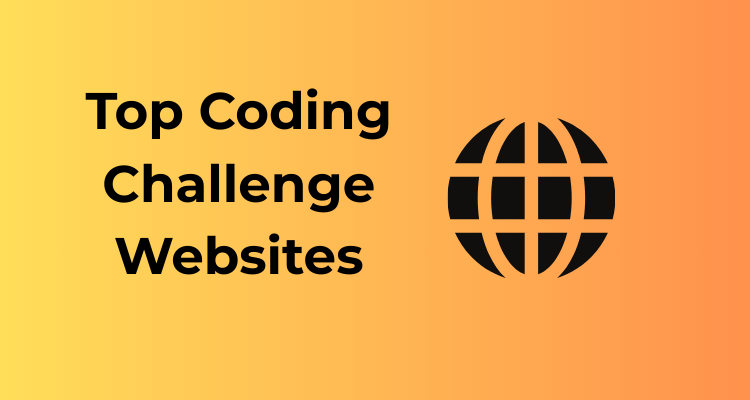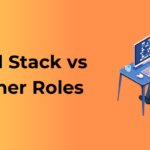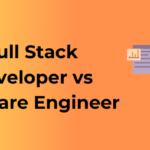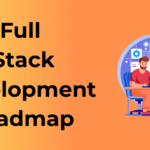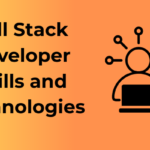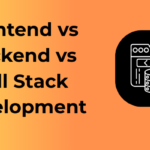Have you ever been overwhelmed by where to start learning a complex skill? Coding is no exception. But here’s some good news: mastering your craft can feel less like jumping into an ocean and more like climbing manageable, well-marked steps—thanks to curated problem sets! Let me break this down for you and share how these thoughtfully crafted challenges can take your coding skills from zero to hero.
Why Curated Problem Sets? Efficiency is Key!
Imagine walking into a gigantic library and trying to pick the perfect book when you barely know what you’re looking for. Sounds chaotic, doesn’t it? That’s how some coding learners feel when faced with an infinite number of coding exercises online. Curated problem sets cut through this noise by organizing tasks in small, purposeful steps, tailored to grow your proficiency in a logical sequence.
For example:
- Basics Matter: Hone your fundamental skills with beginner-friendly problems to strengthen core concepts like loops, conditionals, or basic syntax. Not flashy, but absolutely necessary.
- Progressive Complexity: Once you’ve nailed the basics, the problem sets gradually turn up the heat. You’ll start noticing how simple logic evolves into elegant algorithms. It’s a confidence boost every step of the way.
- Diverse Topics: Curated problem sets often include a variety of scenarios—think string manipulations, data structure challenges, algorithms, and even real-world use cases. Exposure to diverse patterns prepares you for *anything* programming might throw your way.

Practicing Smart Beats Practicing Hard
We’ve all heard the saying, “Practice makes perfect,” right? Well, I’m here to tell you that “smart practice” trumps brute force. Curated exercises aren’t just random problems—they’re carefully designed to maximize learning. Here’s how:
- Immediate Feedback: Many platforms with curated problem sets provide test cases that run your solutions. This lets you instantly see what’s working and where you need improvement.
- Targeted Weaknesses: Struggling with recursion or struggling to efficiently handle large datasets? The right problem sets are like a personal trainer, targeting areas where you need improvement most.
- Endless Variety: Tired of “FizzBuzz” already? Curated problem sets refreshingly mix it up to keep you engaged while learning core concepts.
Turn Problem-Solving Into a Habit
Consistency is the secret sauce to coding success. Tackling even one problem a day builds habits tied to logic, creativity, and resilience. With curated sets, each problem comes pre-packaged with the right level of challenge, meaning you’ll spend less time searching and more time solving.
Pro Tip: Set aside a regular “problem-solving hour” in your daily routine. Whether it’s logging in every morning before coffee or winding down at night after a long day, making time for just one well-curated challenge is enough to keep the wheels turning. Gradually, you’ll see monumental improvements.
Resources to Get You Started
If you’re unsure where to find these magical problem sets, don’t fret! Platforms like LeetCode, HackerRank, and Codeforces are fantastic for offering problems tailored to various skill levels and topics. Many even have curated paths (e.g., “Data Structures in Python” or “Preparing for Interviews”) to guide you toward your specific goals.
Finally, remember this: coding isn’t about how many problems you solve in a day; it’s about learning something new with every challenge you tackle. With curated problem sets, you’ve got a roadmap to success that’s adaptable to wherever you are in your coding journey.
Timed Challenges That Push You Under Pressure
Let’s face it—nobody truly enjoys feeling the pressure of the clock ticking down, but when it comes to honing your coding abilities, *timed challenges* can be a total game-changer. These mini sprints are designed to simulate real-world situations where quick thinking and problem-solving reign supreme. Whether you’re prepping for technical interviews or gearing up to write more efficient code, these challenges can take your skills to new heights.
Why Timed Challenges Matter
Picture this: you’re knee-deep in solving a coding problem during a job interview. You know the concepts, you’ve practiced for weeks, but the looming timer on the screen has you second-guessing yourself. Sound familiar? That’s exactly what timed challenges prepare you for. They do more than just test your skills—they build your mental resilience and help you thrive in high-pressure situations.
Here are a few reasons why they’re a cornerstone for growth:
- Improves Decision-Making: When you’re racing against the clock, you learn to prioritize the most important steps in solving the problem and avoid overthinking.
- Builds Speed and Precision: Repetition with deadlines sharpens your ability to write clean, bug-free code faster over time.
- Mimics Real-Life Scenarios: Many tech roles require quick fixes or time-sensitive solutions—the more practice you have, the more confident you’ll be.
How to Approach Timed Challenges (and Love Them!)
Okay, so how do you approach these without feeling overwhelmed? Don’t worry—here are some proven tips:
- Start Small: Begin with shorter exercises (10-15 minutes long) and work your way up to longer challenges. Small victories build momentum!
- Focus on Learning: Treat every challenge as a lesson. If you don’t complete it in time, review your approach afterward and understand where you could improve.
- Use the Right Tools: Many platforms provide built-in timers and keep track of your progress. These tools make it easier to track your improvement over time.
- Stay Calm: It’s easy to panic when the clock is winding down, but using a calm, methodical approach helps maximize accuracy even under pressure.
The Joy of Mastering “The Zone”
One of the coolest things about practicing with timed challenges is discovering the state known as “The Zone” or “Flow.” It’s when your brain kicks into high gear, distractions fade away, and you’re fully immersed in problem-solving. With enough practice, you’ll enter this focused state more frequently—even during high-pressure coding sessions.

Compete Against Coders Worldwide for a Competitive Edge
Ah, the thrill of competition! There’s nothing quite like pitting your skills against coders from every corner of the globe. Whether you’re a seasoned programmer or just starting out, entering coding competitions offers a unique opportunity to grow, learn, and elevate your skills to entirely new levels. Let’s dive into why competing against others worldwide can truly give you that competitive edge you’re seeking.
Why Compete?
The benefits of competitive programming go far beyond bragging rights. Here’s why getting involved matters:
- Improved Problem-Solving Skills: Competitions require you to think creatively, analyze quickly, and identify patterns. These skills are not just for games—they’re highly valuable in real-world software development.
- Global Perspective: When you see the solutions submitted by coders from different countries, you’ll gain fresh insights and learn new approaches that might never have crossed your mind.
- Boost Your Resume: Think of it this way—listing a strong coding competition ranking on your CV shows dedication, technical expertise, and the ability to operate under pressure. Recruiters love that!
But it’s not just about being better—it’s about the journey of becoming better. Growth takes effort and a dash of courage, doesn’t it?
What You’ll Gain Beyond Winning
Say you didn’t make it to the top spot. Does it mean you’ve gained nothing? Absolutely not. The beauty of global coding competitions lies not just in winning but in the learning process itself.
Here’s what you’ll take away:
- A Deeper Endurance for Challenges: With time restrictions and tricky scenarios, you’ll get used to functioning under pressure—a skill that’s invaluable when facing deadlines and tight technical demands in real-world projects.
- Feedback from the Best of the Best: Many global competitions offer post-contest solutions and breakdowns of the top participants’ approaches. Review these carefully—it’s like having the world’s best coders mentor you!
- Confidence in Your Abilities: You’ll begin to trust your instincts, make decisions faster, and approach each contest with less hesitation, ready to give it your all.
Making the Most Out of It
Now that you’re interested, how do you ensure you’re using competitions to build your competitive edge?
- Start small if you’re nervous. Local coding challenges or student-level hackathons can be a great entry point.
- Practice regularly by solving high-quality problems on reputable platforms. Many coding sites cater to providing challenges specific to competitive environments.
- Take notes on the coding techniques or patterns you struggle with the most. Over time, this self-awareness will help you target problem areas and progress faster.
- Join coding communities to discuss competitions, potential strategies, and effective debugging practices.
Remember, the road to competitive programming excellence isn’t one you take alone. You’re part of a worldwide web of coders, developers, and tech enthusiasts pushing the boundaries of what’s possible. And as you grow, don’t forget to cheer for others along the way—it’s a global tribe of like-minded people seeking mastery, just like you.
Real-World Problem Solving for Practical Experience
Ever felt like you’ve mastered algorithms and data structures but still get cold feet when tasked with solving real-world problems? Don’t worry, you’re not alone! Bridging the gap between theoretical concepts and solving actual, relatable problems is a challenge for many coders. But guess what? It’s also one of the most exciting aspects of programming—where you turn what you’ve learned into solutions that make an impact. Let’s dive into why real-world problem-solving sets you apart and how you can hone this skill.
Why Real-World Problems Matter
Learning programming through isolated exercises is like practicing free throws in basketball—you can get really good at it, but it won’t prepare you for a full game. Real-world programming demands that you juggle diverse challenges such as unclear requirements, real-time feedback loops, and sometimes even constraints like limited memory or computational power. By tackling practical problems, you’re doing more than improving your coding skills—you’re learning to think critically, adapt, and make informed decisions.
Benefits You Gain
- Transferable Skills in the Workplace: Employers value the ability to solve practical issues over just scoring high in technical tests. Engaging with problems that simulate real-life scenarios gives you a head start.
- Improved Debugging and Testing Abilities: When solving real-world problems, you’re often forced to debug your code under unique environments. This teaches you to test more effectively and craft robust solutions.
- Contextual Understanding: You get to see how individual concepts like loops, APIs, or database queries fit into larger systems.
- Prepare for Tech Interviews: Many big-name tech companies employ real-world problem scenarios in interviews. Practicing these ahead of time helps build confidence.
Tips to Get Started with Real-World Problem-Solving
- Start Small: Solving problems doesn’t have to mean building an entire e-commerce platform on day one! Begin with projects like weather apps or personal budget trackers so you can ease into the habit of applied problem-solving.
- Use Open Datasets: Websites like Kaggle or data.gov provide free and vast datasets to explore. Want to automate analysis or make visualizations? Dive right in!
- Contribute to Open Source: This is a fantastic way to gain exposure to real-world codebases while learning collaboration and communication skills.
- Simulate Constraints: Introduce challenges such as limited processing power or strict deadlines to push yourself further.
- Work Backwards from Problems: Identify specific issues in your life or community, then think about how technology can help solve them. For example, build an app to track local recycling programs!
Boosting Confidence by Building Actual Solutions
Never underestimate the satisfaction of creating something meaningful. It could be anything—from a bot that organizes your emails to a machine learning model that predicts stock trends. The more problems you solve, the more confident you become.
Still not sure where to start? Look for challenges available online that focus on real-world problems, often done in collaboration with companies or non-profits. These challenges not only give you practical experience but also the chance to work on something with real impact.
Collaboration Platforms to Learn and Solve Together
Learning to code can sometimes feel like a lonely endeavor, but it doesn’t have to be. Welcome to an incredible world of collaboration platforms where you don’t just solve problems alone — you do it as a team, crafting solutions, learning from diverse perspectives, and enhancing your skillset. Let’s explore why collaboration platforms are game-changers for coders of every level.
Why Collaboration Is a Superpower in Coding
Think of coding as solving a giant, intricate puzzle. Now, isn’t solving puzzles with friends more fun and engaging? Collaboration platforms bring that spirit to programming! Whether you’re tackling challenging algorithms, brainstorming a creative solution, or debugging a tricky snippet, working together amplifies your growth.
Here’s the magic: You not only share your expertise but also gain new insights. It exposes you to alternate approaches, coding styles, and problem-solving methods, which are key to becoming a versatile and adaptable programmer.
Features That Make These Platforms Awesome
So, what exactly do collaboration platforms offer? Dive into their standout features:
- Real-Time Pair Programming: Share your screen, code together in real time, and learn from your peers. It’s almost like working side-by-side, even if you’re miles apart.
- Code Reviews: Sharpen your skills by reviewing others’ code and having your own reviewed. It’s a fantastic way to give and receive constructive tips.
- Shared Workspaces: Work on group projects or solve problems together in a shared, interactive coding environment.
What You Gain by Collaborating
Don’t just take our word for it — here’s what collaboration brings to the table:
- Fresh Perspectives: Someone else might suggest a cleaner, more efficient solution you hadn’t considered.
- Improved Communication: Explaining your code or logic to others strengthens your ability to articulate ideas, an essential skill in professional settings.
- Confidence Booster: Tackling challenges with teammates makes the whole process less intimidating and way more fun.
Tips for Effective Collaboration
If you’re ready to jump in, here are some pro tips to ensure you make the most of it:
- Be Open-Minded: Listen carefully to others’ ideas and don’t be afraid to experiment with new approaches.
- Communicate Clearly: Ask questions, share your thought process, and give constructive feedback.
- Respect Others: Remember, collaboration is a team effort. Celebrate everyone’s contributions!
Building Teamwork for the Future
Here’s the cherry on top: Coding collaboratively on platforms doesn’t just make you a better coder; it prepares you for team-based work environments in the real world. Companies thrive on teamwork, and your ability to collaborate effectively will make you stand out as both a competent developer and valued team player.
Expert Feedback and Solutions for Learning Efficiency
Let’s talk about one of the most empowering aspects of growing as a coder: expert feedback. Whether you’re a beginner attempting to grasp the basics or an experienced pro refining your skills, having access to expert insights can take your learning to new heights. Let’s explore how this powerful tool works and why it’s such a game-changer for improving your coding efficiency.
1. Why Feedback is the Key to Mastery
Have you ever spent hours debugging your code only to discover a small yet crucial mistake? Frustrating, isn’t it? Getting direct feedback from experts can save you from these hair-pulling moments. Instead of endlessly guessing what went wrong, you’ll receive clear, precise guidance to correct issues and improve your logic.
Moreover, experts don’t just help you fix bugs—they help you see the bigger picture. They might suggest ways to optimize your code, teach you cleaner programming practices, or introduce you to alternative approaches you hadn’t considered. Over time, this refined understanding of “how” and “why” builds rock-solid skills.
2. Learn from Model Solutions
It’s one thing to know that your code produces the right result; it’s another to know whether your approach is the most efficient or elegant one. This is where access to expertly crafted solutions can unlock a whole new dimension of understanding. By studying polished solutions, you can:
- Compare your approach with industry-standard practices.
- Identify patterns and shortcuts to save time.
- Discover new functions or libraries that can enhance your work.
Think of these solutions like a masterclass in best practices—each one offering insights you can incorporate into your future projects.
3. Personalized, Actionable Suggestions
The beauty of expert feedback lies in its customization. After submitting your work, many platforms provide detailed, personalized suggestions that directly address areas for improvement. This is like having a mentor guide you step-by-step, highlighting exactly what needs attention and why.
For example:
- They might pinpoint redundant loops and show how to simplify them.
- They could highlight security vulnerabilities in your code, making you more mindful of cybersecurity considerations.
- They may even critique your variable naming conventions to improve readability for team collaborations.
This type of feedback ensures you’re progressing with clarity and focus, not relying on trial and error. It’s a huge boost to both your confidence and skillset!
4. Reduces the Risk of Bad Habits
Sometimes, when we’re learning on our own, we unknowingly develop bad programming habits. From using inefficient algorithms to improper indentation, small errors can snowball if left unchecked. Friendly, constructive criticism helps nip these habits in the bud, keeping your coding journey on the right track.
5. The Balance Between Encouragement and Constructive Feedback
Expert feedback doesn’t mean all criticism, either! Professional coders know how to blend encouragement with suggestions. They’ll let you know what you’re doing well, so you continue building those strengths while addressing your weaknesses. The best kind of feedback is not intimidating—it’s incredibly motivating and helps you stay hungry for improvement.
Engage with Communities to Keep Yourself Motivated
Let’s admit it—programming can sometimes feel like a lonely journey. You sit in front of a screen for hours, tackling bugs, solving problems, and pushing through the steep learning curves. But here’s the secret weapon that many programmers swear by: joining communities! Engaging with like-minded individuals can inject fresh energy into your coding experience and help you stay motivated.
Why Communities Matter
The power of a supportive community can’t be overstated. Being part of a group of people who are learning and growing alongside you can make an incredible difference. Sharing struggles, celebrating tiny victories, and exchanging ideas can instill a sense of belonging that translates to improved focus and determination.
Moreover, these communities often host discussions that broaden your knowledge. You might discover new tools, coding tricks, or practices that you never encountered before. Take advantage of this fortune trove of wisdom!
Types of Communities You Should Explore
Not sure where to begin? Let’s break it down into a couple of different options:
- Online Coding Platforms: Platforms like GitHub, HackerRank, or LeetCode usually come with forums or group discussions. Here, participants voice their coding challenges, question the solutions, and share experiences of working on programming puzzles. Dive in—you may very well find the answer you didn’t know you needed!
- Social Media Groups: Look for Facebook, LinkedIn, or Reddit groups specifically geared toward coding enthusiasts or a particular programming language. Don’t hesitate to ask questions or chime in with your insights. You never know—you might discover that you’re not alone in your struggles.
- Local Meetups and Hackathons: Many cities offer in-person coding meetups or hackathons. These events are a great way to collaborate, build projects together, and create lasting friendships with others in the tech field. Try searching Meetup.com or Eventbrite for events near you.
- Discord and Slack Communities: Need a more casual and interactive setting? Many programming-centric Discord or Slack channels exist where learners and professionals chat about everything from troubleshooting code to career guidance. These spaces can feel more personal and engaging.
How to Make the Most of Your Community Engagement
Being a part of a community is great, but how do you actively make it work for you? Here are some tips:
- Introduce Yourself: When joining a new group, let people know who you are. Share your coding background, goals, and what you hope to learn.
- Engage in Discussions: Don’t be a lurker. Participate in conversations, offer help when you can, and ask thoughtful questions.
- Celebrate Progress Together: Did you crack a tough problem? Share your accomplishment and let others cheer for you. Celebrate their wins too!
- Offer Help: Even if you’re a beginner, there’s always someone newer than you. Helping others reinforces your knowledge and fosters goodwill.
- Stay Consistent: Be a regular participant. The more you engage, the more likely you are to build meaningful relationships and keep learning.

